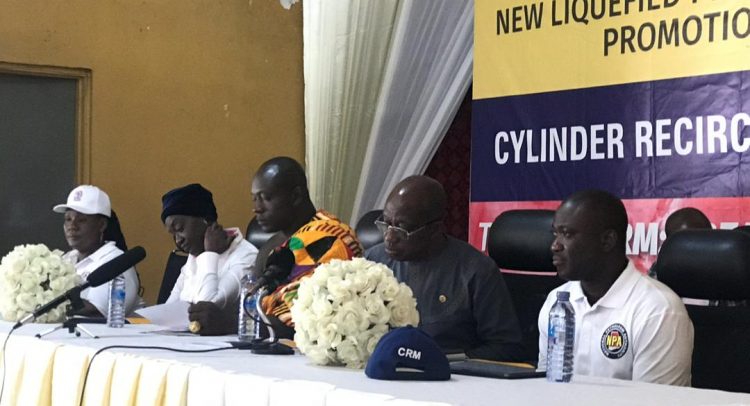THE NATIONAL Petroleum Authority (NPA) has engaged stakeholders in the Ashanti Region on gas Cylinder Recirculation Model (CRM).
The engagement was held on Tuesday, June 11, 2019, under the theme: ‘CRM: Securing Our Safety, Creating More Jobs.’
Delivering a welcome address on the occasion, the Chief Executive Officer (CEO) of NPA, Alhassan Tampuli, said the engagement was aimed at soliciting the input and support of stakeholders as part of the implementation process of the new LPG policy.
According to him, CRM was the implementation model for the National LPG Policy, and it was aimed at providing direction for marketing and distribution of LPG in a safe and efficient manner, to facilitate an increase in access to LPG nationwide.

“This will help achieve the policy goal which is to ensure that at least 50% of Ghanaians have access to safe, clean and environmentally friendly LPG for domestic, commercial and industrial usage by 2030,” he said.
He noted that the policy sought to achieve the following objectives: develop a market-driven structure to ensure safety, increased access and adoption of LPG and enhance the capacity of existing regulatory institutions in order to enforce the regulatory requirements of the new market structure.
The new policy is also to ensure the existence of robust and standard Health, Safety and Environmental practices in the production, marketing and consumption of LPG; ensure the sustainability of supply; and ensure local content and participation in the LPG sub sector in compliance with the Downstream Local Content Policy.
Job Creation
Direct job creation, he revealed, was estimated to be over 4,500 in relation to new jobs under the actors of the new value chain and door to door delivery service.
He said “this does not affect current jobs of LPG Bulk Transporters, LPG Bulk Distribution Companies, and LPG Bulk Storage companies.”
“Let me reiterate that the Cylinder Recirculation model of LPG distribution will be implemented fully.”
“The relevant licenses will be issued and safety protocols will be keenly observed to ensure the safety of the good people of Ghana, while increasing access to LPG for domestic, commercial and industrial use from the current 25% level to 50% by 2030.”
Ashanti Regional Minister, Simon Osei-Mensah, indicated that since the Atomic Gas station fire incident in October 2017, steps have been taken towards the consolidation of activities in the LPG value chain with the view to reducing the health, safety, security and environmental risk.
Specifically, he revealed, “the following milestones have been achieved; risk assessment of all 98 LPG Refilling Plants across the Ashanti region has been completed.”
BY Melvin Tarlue

